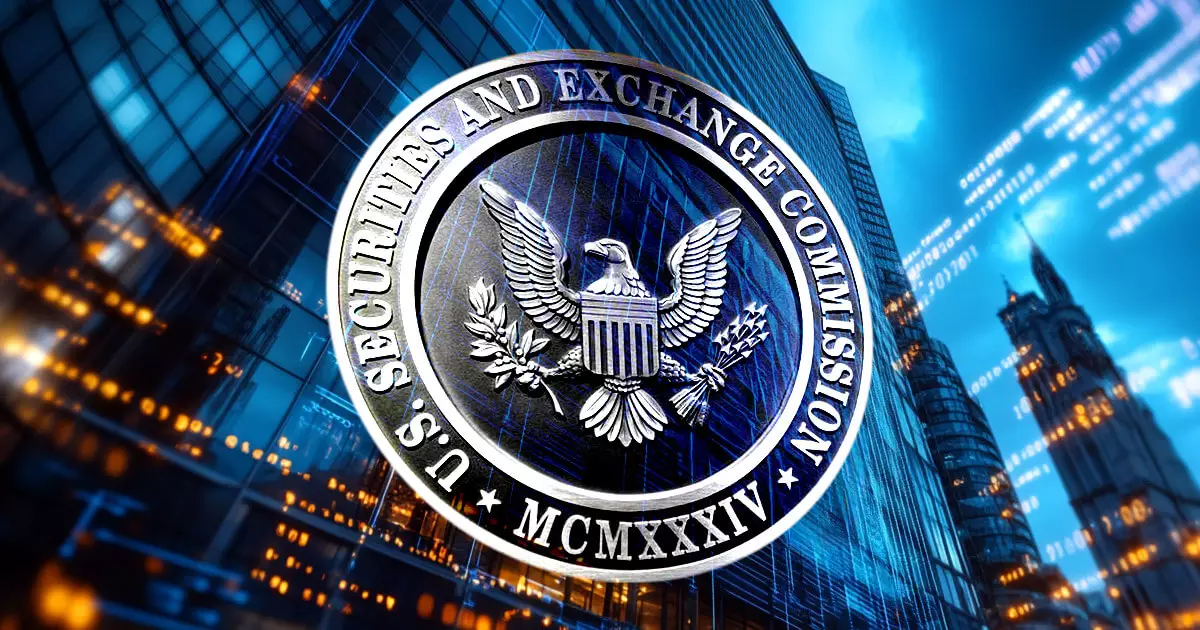In a significant development for the financial regulatory landscape, the U.S. Securities and Exchange Commission (SEC) has announced the establishment of the Cyber and Emerging Technologies Unit (CETU). This newly formed unit replaces the former Crypto Assets and Cyber Unit, reflecting a broader, more nuanced approach to supervising digital assets and addressing the increasing prevalence of cyber-related financial crimes. Set forth on February 20, the CETU is designed to tackle fraud across a diverse spectrum, focusing on issues such as artificial intelligence (AI) manipulation, blockchain-related fraudulent schemes, social media exploitation, and compliance failures in cybersecurity.
Taking the helm of this new initiative is Laura D’Allaird, who brings a wealth of experience from her previous role as deputy director of the SEC’s Division of Enforcement. Under her leadership, the CETU is composed of 30 skilled attorneys and fraud specialists strategically located across nine regional offices of the SEC. This collaborative structure signifies an effort to consolidate knowledge in fintech, cybersecurity, and digital asset markets, enabling the unit to respond more effectively to emergent threats and illicit activities.
Acting SEC Chair Mark Uyeda has been vocal about the importance of this unit, highlighting its dual mandate. He states that the CETU will not only serve to protect investors but will also accelerate capital formation and enhance market efficiency, thereby allowing innovation to flourish in a regulated environment. This perspective marks a departure from a purely punitive approach toward a balanced oversight model that recognizes the importance of technological advancement alongside investor protection.
The CETU’s mandate emphasizes six critical areas of concern: fraud schemes driven by AI, manipulation via dark web and social media platforms, hacking incidents aimed at nonpublic information, account takeovers in brokerage settings, fraud related to crypto assets, and compliance with cybersecurity rules. By zeroing in on these high-stakes areas, the unit is responding to the evolving landscape of financial technologies and the unique risks they present.
This strategic focus signifies important lessons learned from prior enforcement actions under former SEC Chair Gary Gensler, who faced criticism for what some perceived as creating an environment of regulatory uncertainty. The CETU’s thoughtful approach aims to mitigate skepticism among market players while ensuring that innovative technologies are used responsibly.
Broader Reforms and National Priorities
The CETU’s introduction comes at a time marked by a broader reform agenda within the SEC, initiated during the Trump administration. Recent actions have included the rescinding of stringent accounting guidelines, clarification of crypto asset classification rules, and the approval of new spot crypto ETFs. These measures relate closely to an executive order from President Trump aimed at fostering interagency coordination on digital asset markets, further establishing the U.S.’s position as a leader in blockchain innovation while nurturing the development of private stablecoins.
This proactive regulatory environment represents an attempt to harmonize the fast-moving nature of digital assets with an appropriate regulatory framework, allowing both innovation and safety to coexist. The overarching goal is not only to manage emerging technological risks but also to maintain investor trust and foster a healthy, thriving market for digital assets.
One of the more intriguing aspects of the CETU’s formation is its apparent distinction regarding its objectives. Unlike the previous framework that broadly labeled many crypto assets as unregistered securities, the CETU appears more targeted in its pursuit of fraud specifically involving blockchain technology and crypto assets as transaction mediums. This nuanced approach may mitigate concerns for legitimate projects in the crypto space while still offering robust oversight against exploitative practices.
The SEC’s establishment of the CETU is a promising step toward modernizing supervision of digital assets in the face of increasing technological sophistication. By concentrating on both security and innovation, this unit positions the SEC to effectively govern in a rapidly evolving financial landscape while ensuring that investors are safeguarded against emerging threats. As the digital finance ecosystem continues to mature, the CETU could play a pivotal role in shaping a regulatory environment that balances growth with protection, ultimately enhancing the integrity of the financial markets.


Leave a Reply